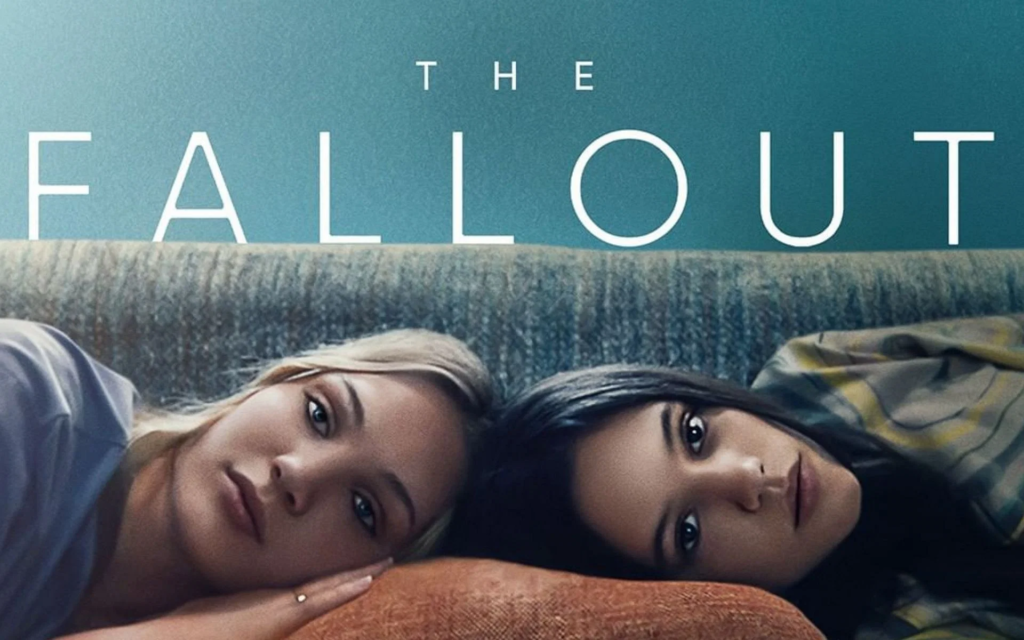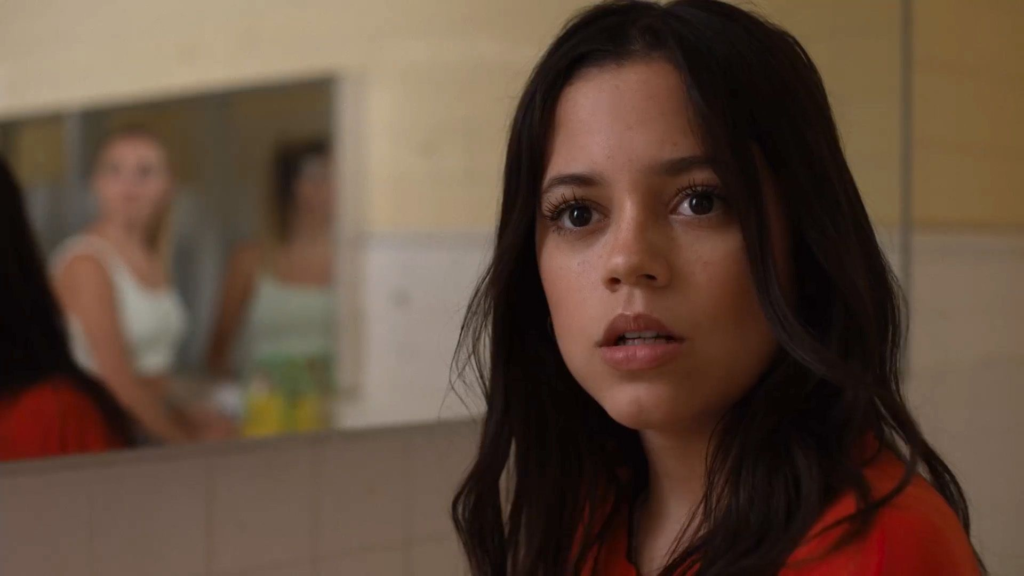
The latest HBO Max original is not the coming-of-age story you are expecting. Although there may have been many teen-targeted films and TV shows that portray characters dealing with trauma and PTSD, this film ultimately manages to show off a storyline and a leading character that does it so memorably, it could heighten anyone’s ability to empathize. Considering how aesthetic, every detail or line of dialogue expressed is relatable and worth lauding for, the dark and real-world themes that are tackled in this film are a lot more different as opposed to most Gen Z-friendly films.
Jenna Ortega plays Vada, who hides in a bathroom stall with schoolmate Mia (Maddie Ziegler) during a school shooting. We meet Quinton (Niles Fitch) a few minutes later after he finds his brother dead, covered in blood right before the police arrive at the school, and the event affects the three excessively. A study on the aftermath of shared trauma, this film seems to focus mostly on the dynamics between Vada’s relationship with Quinton and – primarily – Mia. They now share common ground, unpacking the damage as developing teens. She takes part in different kinds of coping mechanisms, whether good or bad, as she tries her best to start living out days she thinks she does not deserve.
While everyone is moving on, including her best friend Nick, the activist by heart, she cannot help but feel numb, unable to communicate with anyone but Mia. Mia reaches out due to her absent parents, and the two spend a considerable amount of time together, easily finding comfort in each other’s company with their similar source of trauma. However, the more time she spends with Mia, the less present she is with her parents, younger sister, and Nick. Even after the funeral of his brother, she connects with Quinton as he deals with the sudden loss as well.

As a fitting ‘Gen Z’ movie featuring a lot of familiar faces, The Fallout incorporates many invaluable lessons for today’s teenagers. Dare I say, it explores the nuances of mental health, sexuality, and trauma at a deeper level as opposed to famous teen shows like Riverdale and Euphoria. These shows do handle a number of issues that are most commonly found in American high schools, but no episode in those shows can hit harder than this hour and a half drama film through heartbreaking character arcs as opposed to teens who have no business in dealing with murders or teens who are sexually frustrated.
In the case of trauma itself, Ortega’s portrayal of confusion, depression, difficulty to emote, and the many other feelings she goes through with the activities she puts herself through are relatable when trying to cope with survivor’s guilt. After a jolt of feelings after such an event, one would want to try everything to make themselves feel a smidge of gratefulness for being alive. However, she cannot help but wonder, “Why am I alive when he/she isn’t?”. The Disney alum is a rising star with range, and her surprising portrayal definitely opens up opportunities towards award-worthy roles, something that is clear in this actress’s future.

Seeing Maddie Ziegler in a much better role after Sia’s forgettable and offensive directorial debut, Music, would probably get everyone to finally take this girl seriously as an actress and not as someone who merely danced and emoted their ass off in music videos. Her character portrays a teen dealing with survivor’s guilt while lacking parental guidance at such a difficult time by finding solace through drugs and weed, leading her towards the road of addiction and Ziegler fleshes these characteristics quite effortlessly. Likewise, Niles Fitch’s involvement is a no-brainer after his work on This is Us. Even if his inclusion is small, he moves us with his poignant charm despite his character’s circumstances.
One quality that should be lauded in this film is that this was a Gen Z movie that does not ridicule the generation. While it does feature small instances of the trends, interests, accurate portrayals of modern-day teens and young adults, current worries involving social media, sex, or how the long-standing “being on the top of the high school food chain” desire comes secondary to one’s battle with trauma. Characteristics like this have been portrayed most commonly in shows like Never Have I Ever or Sex Education. The Fallout, however, should be praised for sidelining such overused themes in coming-of-age dramas.
To conclude, as triggering as the themes may be, The Fallout does not fail at informing teens alongside parents, the woes and wiles of trauma. It also informs how due to traumatic events, teens start questioning their current reality, relying on quick fixes, doing whatever it takes to prove themselves why they deserved to survive. And from what we learned from the film’s short-lived ‘happy ending’, trauma will always be a recurring friend, waiting in the darkness. It depends on the person on whether they are willing to ignore or run away from it for the rest of their lives or to embrace it and treat it to be able to live a life without guilt.